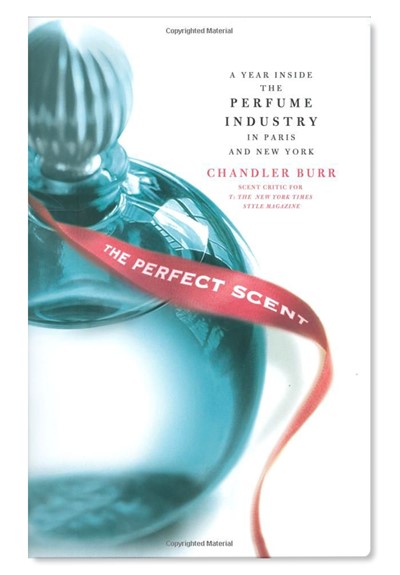I have probably worn cologne less than a handful of times in my life. I have no real interest in perfume. And yet, I was drawn to this book precisely because of my lack of interest in the subject. Perfume is something I so rarely think about that the idea that whole lives revolve around this intrigued me (just as say, a book about hair care products probably would, or laundry detergent). Burr, who covers the perfume industry for the New York Times (again, another surprise--that someone on a newspaper staff actually has as his sole job to cover scents), goes into a single year in the industry, and really into the making of two particular perfumes. One is a high-end fashion perfume, Un Jardin sur le Nil, and the other is a celebrity endorsed commercial perfume, Sarah Jessica Parker's Lovely. What emerges is a story of an industry whose production components bear similarities to the industry I'm more familiar with, books--that same banter back and forth between marketing and the people who do the production of the product, that same time versus cost concern, that same set of people behind a product that one never hears about or knows about, those same kinds of fads that persist for a half a decade and then seem hopelessly in bad taste (in the sixties, dirty/sweaty/animal smells were in, smells one would, as Burr notes, get kicked out of restaurants for today; by the eighties, clean became hip), those same consistent best-sellers that never seem to die (Chanel No. 5). And then there are the people the book portrays, with two central figures in particular: Parker, who comes across as a very likable person; and Ellena, the perfumer at the high-end Hermès, who seems the consummately conscientious artist.
But most fascinating of all is Burr's--and every character in the book's--attention to smell. Despite the fact that smell is supposedly the strongest sense in terms of spurring memories, I have never spent so much time thinking about it. I can't say I even notice most smells, unless they're the stench of something rotting on the bus, something that makes me want to move away. Here, Burr introduces a bevy of them, describing them in ways that often aren't smells at all, at least, not in the manner that I'd think of them--smells with colors, with weights, with stories. And then there are the perfumes themselves, modeled after animals or detergent or sweat or car exhaust or fruit or flowers or cement after rain. I was so inspired at one point, I went to my medicine cabinet and pulled out the four bottles of cologne I've collected over the years--gifts I never wear--and stuck each one to my nose. Indeed, some of them do have characteristics that vaguely resemble something else. One of my scents is definitely citrus; another is vaguely like motor oil. The other two, however, as one not versed in the signification of smell, I could not really discern as anything other than simply perfume--a particular kind of alcohol. But I'm tempted, now, to walk into the mall and play among the spray bottles, testing what it is the perfumer has attempted to do. I feel like a whole other world has opened to me.
Sunday, November 16, 2008
On "The Perfect Scent" by Chandler Burr ****
Labels:
Books,
Chandler Burr,
Four-Star Nonfiction,
Nonfiction
Subscribe to:
Post Comments (Atom)







No comments:
Post a Comment